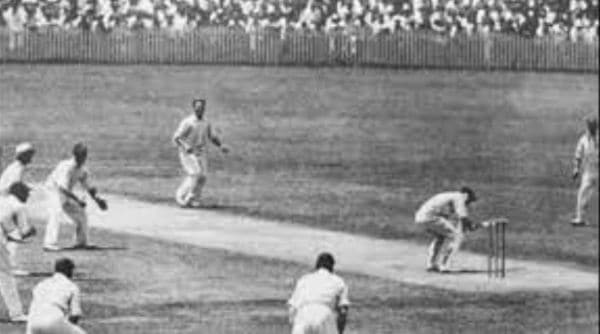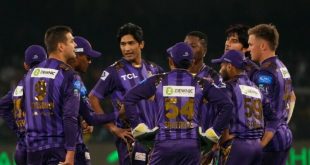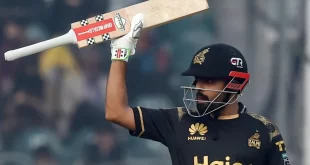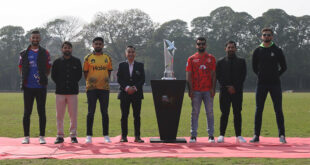Even before the Indian National Congress was officially formed in 1885, under the presidentship of Womesh Chondra Bannerjee, cricket was at the heart of an early struggle over the rights of citizenry. In October 1881, a petition was floated by the cricketers, addressed to the Governor of Bombay, James Fergusson, asking the ground encroached by the European polo players to be cleared for cricket.
This is how it read:
“Bombay, India, 1881. Ever since the British introduced the noble game of cricket among the natives of Bombay nearly twenty years ago, more than five hundred young men of all ages and of all castes pursue this healthful sport on the Parade Ground where alone they are permitted to play and which is the only ground suitable for cricket. Therefore, we cannot understand that the comforts and convenience of the half-a-dozen English gentlemen, who generally play polo, should be preferred to the necessary healthful recreation of over five hundred native youths. The polo ponies completely ruin the turf and render the ground unsuited to cricket. Under the circumstances, will your Excellency and council please request that the English play polo on another spot or allow your Petitioners to play along with the English on the ground at present reserved for the exclusive use of the English cricketers and which is much too large for their requirements?”
 1877 was the year when the first ever official Test match was played between England and Australia.The petition did the trick, and they got their ground cleared off anything apart from cricket. But within a year, the Polo players were back, claiming the grounds for two days a week. Cricketers sulked again.
1877 was the year when the first ever official Test match was played between England and Australia.The petition did the trick, and they got their ground cleared off anything apart from cricket. But within a year, the Polo players were back, claiming the grounds for two days a week. Cricketers sulked again.
But news came in 1891 that the new Governor from England Lord Harris had arrived. There has been a lot of hagiography about Harris and his relationship with cricket in India in the distant past, which has been effectively dispelled by the historian Ramachandra Guha in his numerous works, but for now, the focus is just on his initial foray into cricket in India.
SUBSCRIBER ONLY STORIES
s a famous cricketer, a former captain of England, an esteemed member of London’s MCC – and so he could be in theory coaxed to give full control of the ground to cricketers. And so they petitioned him.
This is what they wrote: ’… fully believe that your Excellency is fully aware that even in England there are vast grounds reserved for cricket alone and the very idea of the turf being spoilt by the polo ponies would not be for a moment tolerated by the authorities’ (or indeed, by the cricketers).”
Harris sorted out the conflict by allotting land, ‘reclaimed’ from the sea for the exclusive use of native Indian cricketers. The land was carved up in three plots: for Parsis, Hindus, and Islam Gymkhanas.
Cricket got its piece of land. Of course, never mind the fact that polo itself is considered of Indo-Iranian in its origins, and it could be argued that it was more indigenous than cricket, which came from the British. But in the 19th century Bombay, polo wasn’t a common-man’s sport. Who could afford a pony, after all?
As the popular line from Jerry Seinfeld’s eponymous sitcom goes, “I hate anyone that ever had a pony when they were growing up.” And when the Polish grandmother character is hurt and leaves the dinner table, Seinfeld would let out an anguished stream: “I didn’t know she had a pony. How was I to know she had a pony? Who figures an immigrant’s going to have a pony? Do you know what the odds are on that? I mean, in all the pictures I saw of immigrants on boats coming into New York harbor, I never saw one of them sitting on a pony. Why would anybody come here if they had a pony? Who leaves a country packed with ponies to come to a non-pony country? It doesn’t make sense.. am I wrong?!”
The Indian cricketers didn’t quite use those lines but their direct formal plea worked.
‘No Government, and no governing class in the world, ever gave to the governed voluntarily, readily, or cheerfully any rights or privileges which in fairness belonged to them. These are always, as history teaches us, obtained after struggles of more or less persistency’,” wrote the historian Shapoorjee Sorabjee, the author of The Struggle: Polo versus Cricket’.
It would eventually lead to formation of a Pentangular cricket with Parsis, Hindus, and Europeans in a triangular contest. Later, a team of Muslims would join to make it four-pronged. Later, a team of “Rest” was formed to accommodate the other religious denominations.
Years later, just before independence, Mahatma Gandhi would urge the countryman to stop the “communal” pentangular tournament, and it would soon be disbanded.
“I would like the public of Bombay to revise their sporting code and erase from it communal matches. I can understand matches between colleges and institutions, but I never understood reasons for having Hindu, Parsi, Muslim and other communal Elevens. I should have thought that such unsportsmanlike divisions would be considered taboos in sporting language and sporting manners,” wrote Gandhi. “Can we not have some field of life which cannot be touched by the communal spirit?”
 Pakish News We are an interactive media group that here a purpose to update users with the latest information. Our mission is to give you knowledge not only about your surroundings. We will also update you around the Globe.
Pakish News We are an interactive media group that here a purpose to update users with the latest information. Our mission is to give you knowledge not only about your surroundings. We will also update you around the Globe.




You must be logged in to post a comment.